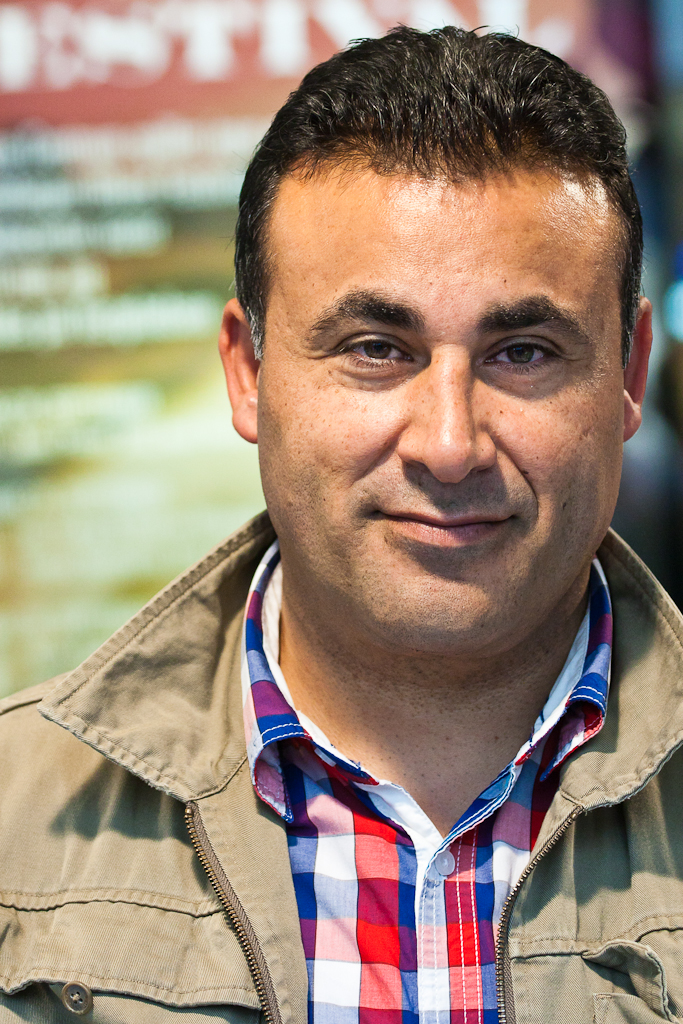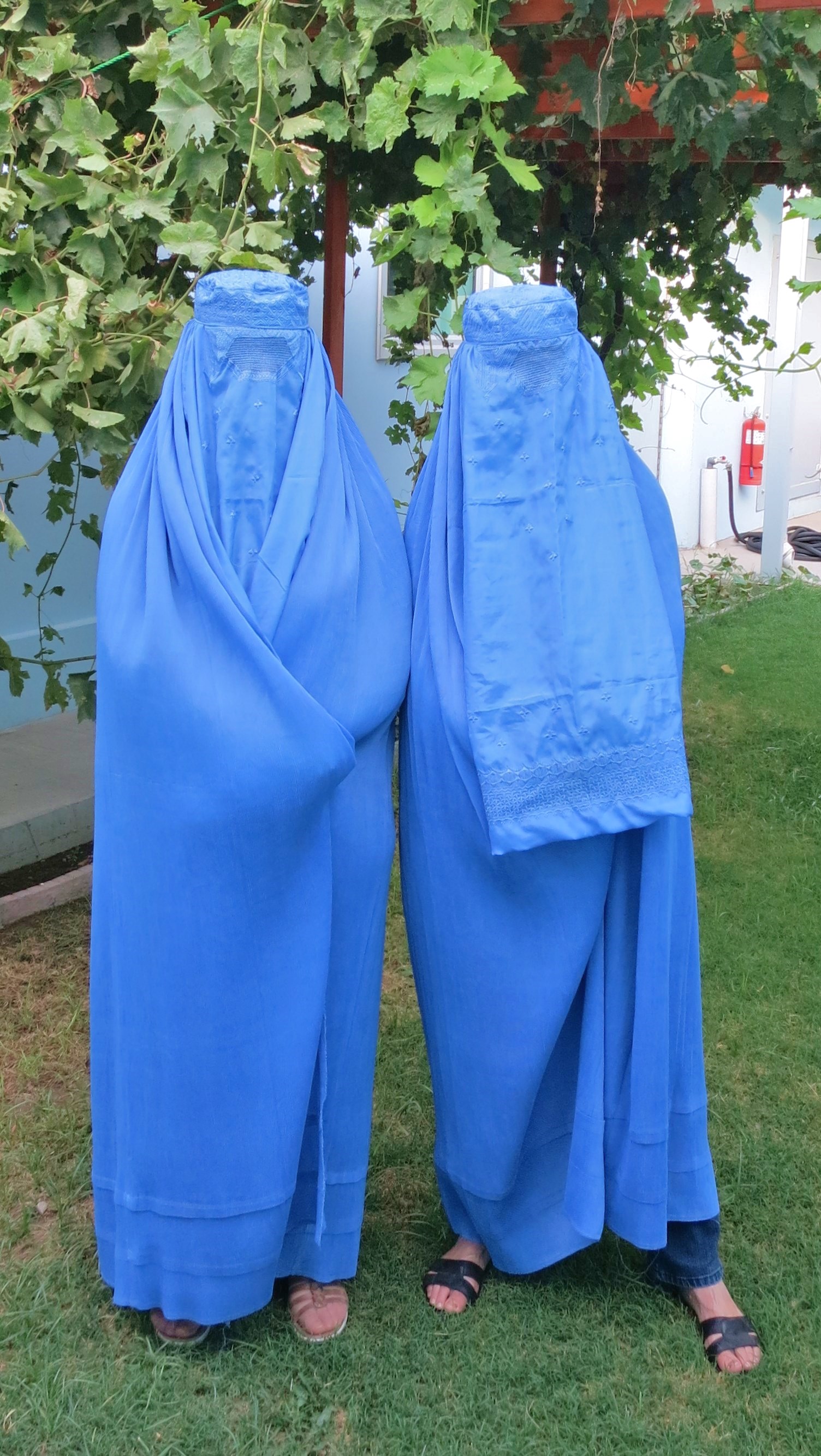|
Liberal And Progressive Islam In Europe
This is a list of individual liberal and progressive Islamic movements in Europe, sorted by country. See also Islam in Europe and Euroislam. Denmark Democratic Muslims Democratic Muslims is a political organization in Denmark founded by Naser Khader, Yildiz Akdogan and other Muslims in February 2006 after the escalation of the Jyllands-Posten Muhammad cartoons controversy. Its goal is a peaceful co-existence of Islam and democracy. Naser Khader left his position as leader in 2007. In 2009 and 2011, it was reported that the organization had few members and little activity. Germany In June 2017, female human attorney, author and human rights activist Seyran Ateş opened the Ibn Ruschd-Goethe mosque in Berlin in which worshippers of all Islamic sects and homosexuals were welcome to worship. Men and women pray together unlike in other mosques while face-covering veils such as burqas and niqab were banned on the premises as such garments are by Ateş considered poli ... [...More Info...] [...Related Items...] OR: [Wikipedia] [Google] [Baidu] |
Liberalism And Progressivism Within Islam
Liberalism and progressivism within Islam involve professed Muslims who have created a considerable body of Progressivism, progressive thought about Islamic understanding and practice. Their work is sometimes characterized as "Progressivism, progressive Islam" ( ar, الإسلام التقدمي '). Some scholars, such as Omid Safi, differentiate between "Progressive Muslims" (post-colonial, anti-imperialist, and critical of modernity) and "Liberal advocates of Islam" (an older movement embracing modernity). Liberal Islam originally emerged out of the Islamic revival, Islamic revivalist movement of the 18th-19th centuries. Liberal and progressive ideas within Islam are considered controversial by some Islamic schools and branches, traditional Muslims, who criticize liberal Muslims on the grounds of being too Western world, Western and/or Rationalism, rationalistic. The methodologies of liberal and progressive Islam rest on the re-interpretation of traditional Islamic holy bo ... [...More Info...] [...Related Items...] OR: [Wikipedia] [Google] [Baidu] |
Seyran Ateş
Seyran Ateş (born 20 April 1963) is a German lawyer and a Muslim feminist. She founded the Ibn Ruschd-Goethe mosque in 2017, as Germany's first liberal place of worship for Muslims. Ateş is best known for challenging conventional ideas in Islamic teaching by opening a mosque in Berlin which breaks with traditionalist precepts of what being a Muslim means."Islam needs a sexual revolution" interview in '' Der Spiegel'', October 13, 2009. Retrieved January 20, 2010. Early life Ateş was born in , of a Turkish mother and a |
Russian Empire
The Russian Empire was an empire and the final period of the Russian monarchy from 1721 to 1917, ruling across large parts of Eurasia. It succeeded the Tsardom of Russia following the Treaty of Nystad, which ended the Great Northern War. The rise of the Russian Empire coincided with the decline of neighbouring rival powers: the Swedish Empire, the Polish–Lithuanian Commonwealth, Qajar Iran, the Ottoman Empire, and Qing China. It also held colonies in North America between 1799 and 1867. Covering an area of approximately , it remains the third-largest empire in history, surpassed only by the British Empire and the Mongol Empire; it ruled over a population of 125.6 million people per the 1897 Russian census, which was the only census carried out during the entire imperial period. Owing to its geographic extent across three continents at its peak, it featured great ethnic, linguistic, religious, and economic diversity. From the 10th–17th centuries, the land ... [...More Info...] [...Related Items...] OR: [Wikipedia] [Google] [Baidu] |
Islamic Modernism
Islamic modernism is a movement that has been described as "the first Muslim ideological response to the Western cultural challenge" attempting to reconcile the Islamic faith with modern values such as democracy, civil rights, rationality, equality, and progress.''Encyclopedia of Islam and the Muslim World'', Thompson Gale (2004) It featured a "critical reexamination of the classical conceptions and methods of jurisprudence" and a new approach to Islamic theology and Quranic exegesis (''Tafsir''). A contemporary definition describes it as an "effort to re-read Islam's fundamental sources—the Qur'an and the Sunna, (the practice of the Prophet) —by placing them in their historical context, and then reinterpreting them, non-literally, in the light of the modern context." It was one of the of several Islamic movements – including Islamic secularism, Islamism, and Salafism – that emerged in the middle of the 19th century in reaction to the rapid changes of the time, especia ... [...More Info...] [...Related Items...] OR: [Wikipedia] [Google] [Baidu] |
Jadids
The Jadids were Muslim modernist reformers within the Russian Empire in the late 19th and early 20th century. They normally referred to themselves by the Turkic terms ''Taraqqiparvarlar'' ('progressives'), ''Ziyalilar'' ('intellectuals') or simply ''Yäşlär/Yoshlar'' ('youth'). Jadid movement advocated for an Islamic social and cultural reformation through the revival of pristine Islamic teachings; while simultaneously engaging with modernity. Jadids maintained that Turks in the Russian Empire had entered a period of decay that could only be rectified by the acquisition of a new kind of knowledge and modernist, European-modeled cultural reform. Modern technologies of communication and transportation such as telegraph, printing press, postal system, railway as well as the spread religious literature through periodicals, journals, newspapers, etc. played a major role in dissemination of Jadid ideals. Although there were substantial ideological differences within the movement, Jad ... [...More Info...] [...Related Items...] OR: [Wikipedia] [Google] [Baidu] |
Fatwa
A fatwā ( ; ar, فتوى; plural ''fatāwā'' ) is a legal ruling on a point of Islamic law (''sharia'') given by a qualified '' Faqih'' (Islamic jurist) in response to a question posed by a private individual, judge or government. A jurist issuing fatwas is called a ''mufti'', and the act of issuing fatwas is called ''iftāʾ''. Fatwas have played an important role throughout Islamic history, taking on new forms in the modern era. Resembling ''jus respondendi'' in Roman law and rabbinic ''responsa'', privately issued fatwas historically served to inform Muslim populations about Islam, advise courts on difficult points of Islamic law, and elaborate substantive law. In later times, public and political fatwas were issued to take a stand on doctrinal controversies, legitimize government policies or articulate grievances of the population. During the era of European colonialism, fatwas played a part in mobilizing resistance to foreign domination. Muftis acted as independent s ... [...More Info...] [...Related Items...] OR: [Wikipedia] [Google] [Baidu] |
Egypt
Egypt ( ar, مصر , ), officially the Arab Republic of Egypt, is a transcontinental country spanning the northeast corner of Africa and southwest corner of Asia via a land bridge formed by the Sinai Peninsula. It is bordered by the Mediterranean Sea to the north, the Gaza Strip of Palestine and Israel to the northeast, the Red Sea to the east, Sudan to the south, and Libya to the west. The Gulf of Aqaba in the northeast separates Egypt from Jordan and Saudi Arabia. Cairo is the capital and largest city of Egypt, while Alexandria, the second-largest city, is an important industrial and tourist hub at the Mediterranean coast. At approximately 100 million inhabitants, Egypt is the 14th-most populated country in the world. Egypt has one of the longest histories of any country, tracing its heritage along the Nile Delta back to the 6th–4th millennia BCE. Considered a cradle of civilisation, Ancient Egypt saw some of the earliest developments of writing, agriculture, ur ... [...More Info...] [...Related Items...] OR: [Wikipedia] [Google] [Baidu] |
Al-Azhar University
, image = جامعة_الأزهر_بالقاهرة.jpg , image_size = 250 , caption = Al-Azhar University portal , motto = , established = *970/972 first foundation: fatimid era *1961 – university status , type = Public , endowment = , president = Dr. Mohamed Hussin , head_label = , head = , students = , undergrad = , postgrad = , doctoral = , address = , city = Cairo , country = Egypt , campus = Urban , religious_affiliation = Sunni Islam (always - Ash'aari, Maturridi.) , calendar = , faculty = , divinity = , profess = , coordinates = , affiliations = , logo ... [...More Info...] [...Related Items...] OR: [Wikipedia] [Google] [Baidu] |
Death Threat
A death threat is a threat, often made anonymously, by one person or a group of people to kill another person or group of people. These threats are often designed to intimidate victims in order to manipulate their behaviour, in which case a death threat could be a form of coercion. For example, a death threat could be used to dissuade a public figure from pursuing a criminal investigation or an advocacy campaign. Legality In most jurisdictions, death threats are a serious type of criminal offence. Death threats are often covered by coercion statutes. For instance, the coercion statute in Alaska says: Methods A death threat can be communicated via a wide range of media, among these letters, newspaper publications, telephone calls, internet blogs and e-mail. If the threat is made against a political figure, it can also be considered treason. If a threat targets a location that is frequented by people (e.g. a building), it could be a terrorist threat. Sometimes, death threats ... [...More Info...] [...Related Items...] OR: [Wikipedia] [Google] [Baidu] |
Niqāb
A niqāb or niqaab (; ar, نِقاب ', "aceveil"), also called a ruband, ( fa, روبند) is a garment, usually black, that covers the face, worn by some Muslim women as a part of an interpretation of '' hijab'' (i.e. "modest dress"). Muslim women who wear the niqab do so in places where they may encounter non-''mahram'' (un-related) men. Somewhat controversial in some parts of the world, the niqab is most often worn in its region of origin: the Arab countries of the Arabian Peninsula – Saudi Arabia, Yemen, Oman, and the United Arab Emirates, where it is common and considered as culturally belonging to the region, though not compulsory. Historically only found amongst Muslim women in Najd, a region of Saudi Arabia, as well as elsewhere in the Arabian Peninsula, since the late 1970s the Niqab has spread to more religious Muslim women, usually Sunni, throughout the Middle East and worldwide as a result of the Iranian Revolution and the Islamic Revival brought on by the succ ... [...More Info...] [...Related Items...] OR: [Wikipedia] [Google] [Baidu] |
Burqa
A burqa or a burka, or , and ur, , it is also transliterated as burkha, bourkha, burqua or burqu' or borgha' and is pronounced natively . It is generally pronounced in the local variety of Arabic or variety of Persian, which varies. Examples: , plural: , in Literary Arabic by Egyptians: , plural: . ( ar, برقع ) is an enveloping outer garment worn by women which fully covers the body and the face in some Islamic traditions. Also known as a chadaree ( ps, چادري) or chaadar (Urdu, fa, چادر) in Pakistan, Afghanistan and Iran, or a ''paranja'' (russian: паранджа́; tt-Cyrl, пәрәнҗә) in Central Asia, the Arab version of the burqa is called the '' boshiya'' and is usually black. The term ''burqa'' is sometimes conflated with the ''niqāb'' even though, in more precise usage, the niqab is a face veil that leaves the eyes uncovered, while a burqa covers the entire body from the top of the head to the ground, with a mesh screen which only allows th ... [...More Info...] [...Related Items...] OR: [Wikipedia] [Google] [Baidu] |






